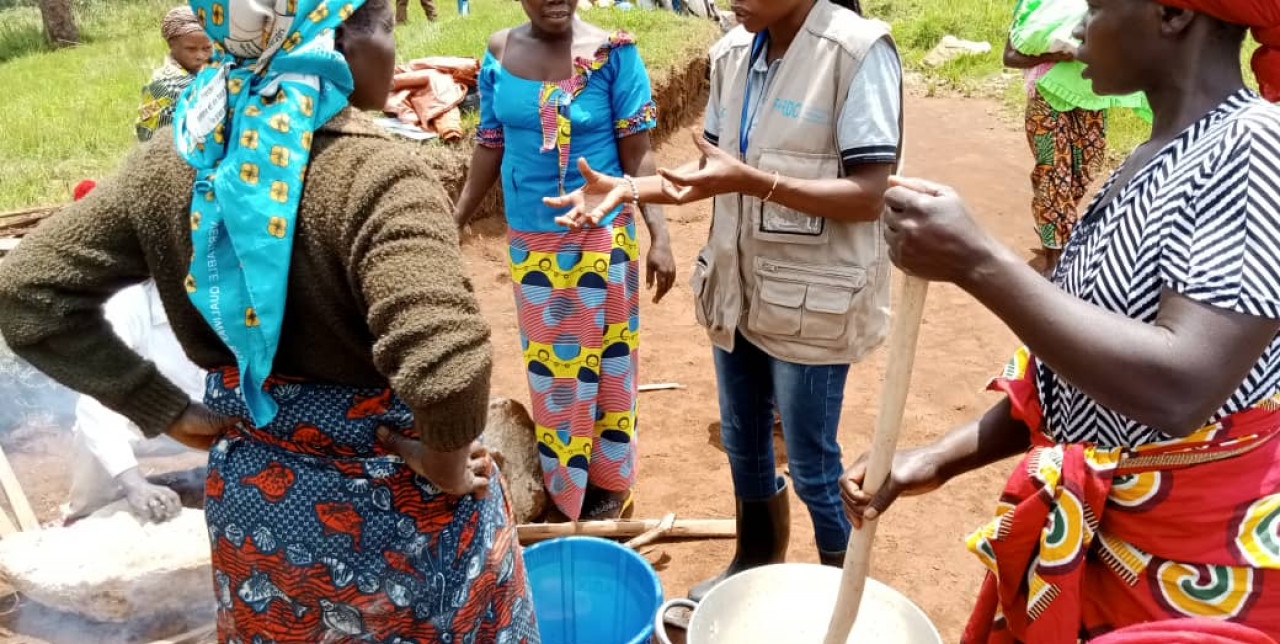31-10-2023 | di COOPI
DRC. A new project to strengthen the fight against epidemics and child mortality
Through the ECHO project "Multisectoral Integrated Emergency Assistance in Health, Nutrition, Protection, Water, Sanitation and Hygiene", which will be implemented from May 1, 2023 until the end of April 2024, COOPI-Cooperazione Internazionale aims to improve the health of the population of the conflict-affected in the health zones of Rwampara, Lita, Mangala and Bambu, Ituri Province, and Tunda Health Zone, Maniema Province. Activities will also be carried out with the collaboration of ALIMA (The Alliance for International Medical Action, an international NGO that is project leader) and IMT (Institut de Médicine Tropicale, a local partner).
The Democratic Republic of Congo is subject to frequent inter-community conflicts, resulting in population displacement and disorganization of the health care system. This severely reduces access to basic medical and social services and increases people's vulnerability. Intervention regions also face a number of epidemics and infectious diseases, such as measles, monkeypox, malaria, and Covid-19. Malnutrition also remains at alarming levels, above the World Health Organization's emergency threshold of 2 percent.
In Ituri for example, more than 2 million people live as internally displaced people in situations of malnutrition and with a deeply disorganized health care system due to intra-community conflicts. In the Tunda health zone in Maniema, on the other hand, the monkeypox epidemic continues to spread, straining an already precarious health care system: there are severe shortages of medicines, vaccines, staff and access to basic medical and social services. The assessment conducted by ALIMA and IMT in May 2022 speaks volumes:
Maniema province is the third most affected by the epidemic, with the Tunda area accounting for 90 percent of cases. More than 60 percent of cases are children between the ages of 5 and 14."
The project thus provides access to free, high-quality health care, as well as treating cases of child malnutrition, and aims to contribute to the stabilization of 14 health areas affected by a highly volatile security environment through joint interventions, so it will reinforce the activities already implemented under the previous project in the areas of health, nutrition, protection, and WASH (promotion of water, sanitation and hygiene). A total of 239,672 beneficiaries will be supported, 32 percent of whom are IDPs (internally displaced people), living with host families. The main objective is to reduce the morbidity and mortality of people in the target areas through an integrated response to the emergency and monkeypox epidemic.
Since access to clean water is also a real challenge in many parts of the country, COOPI is constructing several wells to ensure water availability. In addition, the environmental impact of activities is one of the most important interests of the project, so we are committed to promoting and implementing sustainable waste treatment and the use of renewable energy.
Finally, project beneficiaries are heavily involved at every stage, thanks to mechanisms for satisfaction assessment. Indeed, community stakeholders play an essential role, particularly in the area of malnutrition prevention, through awareness-raising activities. One of the goals of the project is thus to pay special attention to building resilience, ensuring ownership of activities and ensuring their sustainability.
Present in the Democratic Republic of Congo since 1977, COOPI has significantly increased the number of its interventions and is committed to managing multi-year projects to ensure sustainable and harmonious development. Its presence in the Country for more than 40 years gives COOPI an in-depth knowledge of the territory, which is also reflected in good coordination and synergy with other actors.




 Dem. Rep. of Congo
Dem. Rep. of Congo